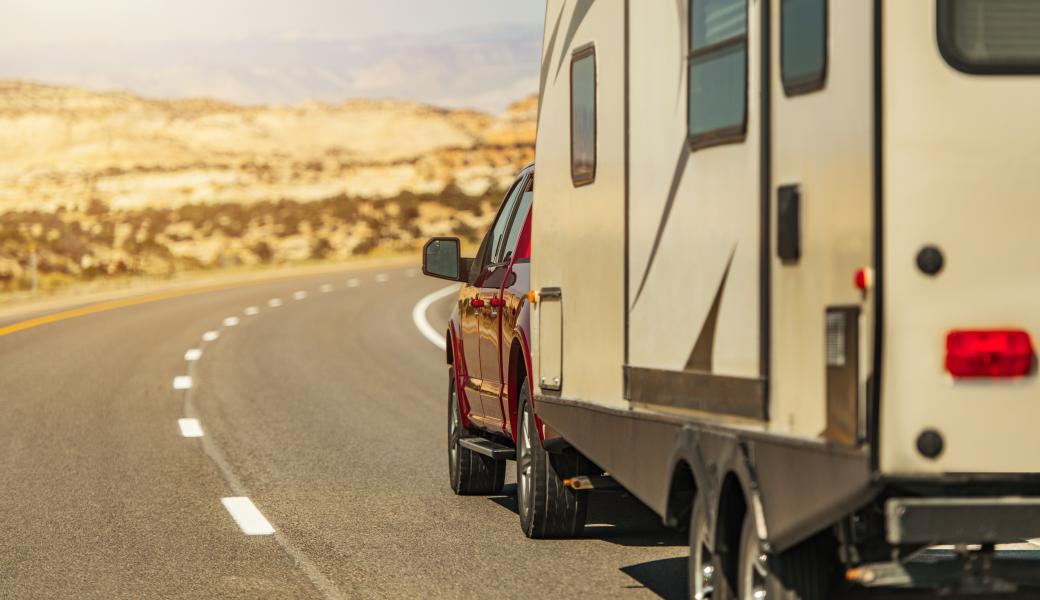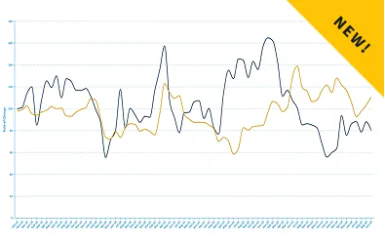So You Bought An RV Or Travel Trailer During The Pandemic? Tips For Happy Outings

The COVID-19 pandemic created a huge surge in travel trailer sales over the past year. People were desperate to get away safely. Forced to work from home, some discovered they could be productive from just about anywhere with some connectivity. So why not hit the road and see the country.
Sales continue to be high.
I towed my first travel trailer solo when I was 17. We called it the “egg,” and my father allowed me to tow it to a state park about an hour away for my senior year of cross country camp. It wasn’t very long or heavy, and had no trailer brakes, sway control or weight distribution. I pulled it with my beloved 1983 Jeep CJ7 that had a leaky soft top and enough rust on the rear wheel wells that when it rained outside, it rained a little inside.
One trip and I was hooked.
That was the fall of 1994, and I had to wait 21 years before owning my own travel trailer. My wife and I camped by tent quite a bit between then and now and enjoyed it. But by the time we had our third child, tents and coolers and everything that goes into camping with children and babies was making the hobby a challenge.
So, in 2015, we purchased our first travel trailer, a 23-foot Rockwood Roo hybrid, and we’ve learned a great deal about towing since then. I must admit when I first bought our trailer, I didn’t know much about proper weight distribution, sway control and loading, but the family that sold us the trailer took a lot of time explaining the basics and getting us ready for our first outing.
Since then, we’ve upgraded to a 33-foot trailer and have logged more than 10,000 miles through 19 states. I love learning new tips and tricks from the travel trailer community as we explore all this country has to offer.
If you’ve recently made a trailer purchase (or are about to) but are perhaps a little overwhelmed by the concept of pulling your lodging behind you, maybe I can share some of what I’ve learned over the past six years.
Know your capacities
Know the capacities of your tow vehicle, especially if you’re just now looking to buy a travel trailer. They’re all listed in your owner manual and on stickers on the driver’s side door jamb.
There’s more to know and understand than just your maximum towing capacity. Know your vehicle’s payload (or cargo carrying capacity), which is usually the first number you’ll max out while towing. Payload includes passengers, cargo you put in the vehicle and the tongue weight of the trailer, which can eat into your max payload quickly.
Tongue weight, a key number, is the weight in front the of trailer’s axles that rests on the hitch ball of your tow vehicle. It should ideally be 10-15% of the total weight of your loaded trailer. The listed tongue weight of a trailer new and empty is going to be much different once loaded for a trip with supplies, propane and batteries.
Don’t know your trailer tongue weight? Sherline sells an affordable trailer tongue scale, or you can go to a CAT truck scale and weigh your vehicle and trailer for about $12. It’s well worth it because it helps you learn proper trailer loading, too.
[...]
Control sway
Sway is that sometimes-terrifying wagging of the back end of your travel trailer, and there are many scenarios that cause it. Think of an excited dog that’s wagging its tail so hard it makes its entire body wiggle. Sway that gets out of control can cause your tow vehicle to lose control.
Choose the best sway control hitch you can afford. Don’t skimp on the one piece of equipment connecting your new travel trailer to your tow vehicle and the precious cargo inside. A good hitch makes a big difference in how pleasant your towing experience is and how fatigued you are at the end of the day.
We used a Reese Pro hitch on our first travel trailer, which was OK, but not great with sway control. We upgraded to an Equalizer E4 with our second trailer. Better, but it still did not take care of all the sway, especially when semi trucks passed us on the interstate or when we drove in cross winds.
We now use a ProPride 3P hitch which, through some nifty physics, eliminates sway altogether. It is, hands down, the best investment We’ve made for towing our travel trailer. I was able to pull through two hours of a high wind advisory in Wyoming in June with ease, something I never would have attempted with my other hitches. A bonus: It is American-made, about 3.5 hours from Cleveland, in Holly, Michigan.
Loading your travel trailer properly also can decrease sway. Loading too much weight behind the axle(s) of your travel trailer will cause more sway. Having enough tongue weight can help take wag out of the trailer, which is why I encourage people who don’t know their weights to visit a CAT scale.
Get a good trailer brake controller
If your tow vehicle doesn’t have an integrated trailer brake controller, buy an aftermarket one. It provides much more control in the amount of brake pressure being applied to your trailer, and gives you the ability to boost your trailer brakes in case of an emergency stop. I use a Prodigy P2 and really like its ease of use.
Check out the full article from Cleveland.com here.
Please Sign in to View
Log in to view member-only content.
If you believe you are receiving this message in error contact us at memberservices@rvia.org.

